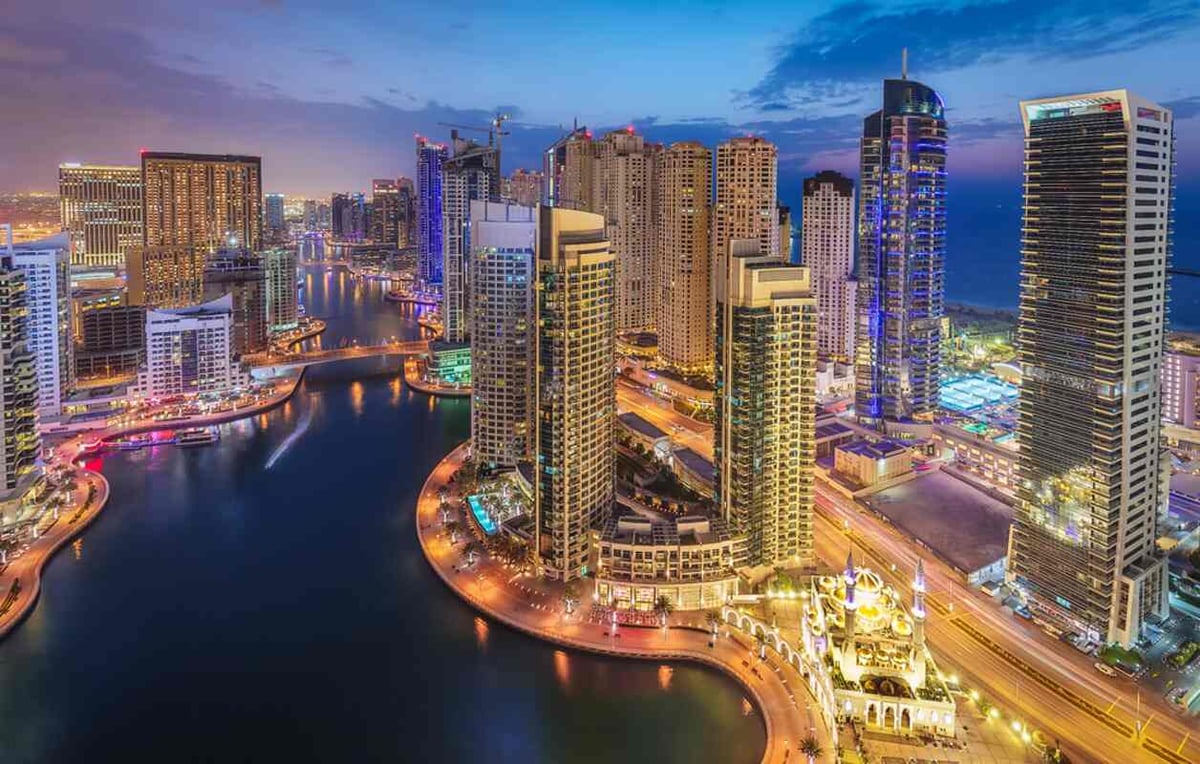The Dubai Land Department revealed today that it recorded over AED4.78 billion ($1.3 billion) real estate transactions on Thursday. This impressive figure highlights Dubai’s growing property market and appeal among investors who continue to flock to the city to benefit from its world-class business offerings and investment opportunities.
In a recent market report, Engel & Völkers Middle East confirmed another standout quarter for Dubai’s real estate sector. Residential property sales increased by 22.4 percent year-on-year, with a 29.6 percent increase in the total value sold, driven by strong investor sentiment, rising population figures, and a steady flow of global capital into the emirate. Commercial real estate sales increased by 18.2 percent, with a 29.5 percent increase in the total value of transactions.
Despite the usual seasonal dip from Q4, Dubai’s residential market delivered broad-based growth. Off-plan sales were up 23.9 percent and secondary transactions rose 20.3 percent, with continued demand across both ends of the price spectrum.
Apartments dominate transactions
Apartments in Dubai remained the dominant property type, comprising 76 percent of all residential transactions. Jumeirah Village Circle retained its lead in both off-plan and resale apartment sales, supported by attractive pricing, strong rental yields and proximity to major road networks.
Secondary market momentum was also evident in Business Bay, Dubai Marina and Downtown Dubai—key areas sought by investors and end-users alike for their connectivity, proximity to amenities and enduring rental demand.
In Q1 2025, the villa segment was also a clear standout for growth, with transactions increasing by 80.6 percent year-on-year. The surge was primarily led by off-plan activity in emerging, master-planned communities such as The Valley, Emaar South and Damac Islands. The total transaction value for villas rose by 55.1 percent, pointing to a growing preference for more affordable, family-oriented housing in newer developments on the fringes of Dubai.
“In the face of global economic uncertainty, Dubai’s real estate market continues to show excellent fundamentals, with cross-sector growth and compelling returns for investors. Demand is being fuelled not just by regional wealth and migration, but by strategic policy, infrastructure investment, and the city’s global positioning as a future-forward hub for living and business,” said Daniel Hadi, CEO of Engel & Völkers Middle East.
Luxury and ultra-luxury segments maintain momentum
In the luxury and ultra-luxury segment, Dubai maintained its momentum. Sales above AED10 million grew by 29 percent from Q1 2024, and are now up 185 percent from Q1 2022. Palm Jumeirah and the rapidly emerging Palm Jebel Ali accounted for 31 percent of sales over AED10 million, supported by demand for ultra-luxury, waterfront villas.
Noteworthy deals included the AED425 million sale of the Marble Palace in Emirates Hills and an AED115 million villa in Palm Jumeirah’s EOME community.
Dubai continues to establish itself as the world’s leading destination for high-net-worth individuals. According to Henley & Partners, the number of resident millionaires has grown by over 100 percent in the past decade, with the UAE attracting more HNWIs than any other country in 2023 and 2024. Today, Dubai is home to more than 81,000 millionaires, 237 centi-millionaires, and 20 billionaires – a figure that is set to rise as global wealth reallocates toward stable, high-performing destinations.
Read: Qatar’s real estate trade volume surpasses $110.2 million in a week
Major infrastructure investments to raise Dubai’s attractiveness
Recent infrastructure announcements—including the acceleration of the Etihad Rail project, the rollout of the Dubai Loop system, and strategic road upgrades in central business zones—are expected to further reinforce the city’s competitive edge and drive growth in its real estate market.
In addition, major commercial projects announced in Q1 2025, such as the AED5 billion redevelopment of Mall of the Emirates, also signal strong confidence from Dubai’s top developers in the long-term resilience of the city’s retail and consumer sectors.
As Dubai continues to attract global investors, business leaders, and new residents, Engel & Völkers remains optimistic about the outlook for the remainder of 2025. “From prime residential to commercial real estate, Dubai is increasingly seen as a safe haven for capital and a high-performance market that rewards long-term vision,” Hadi added.








